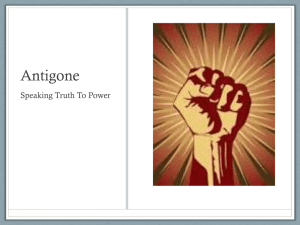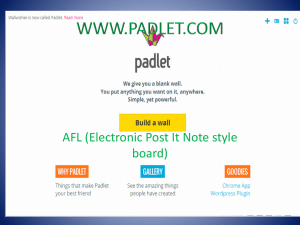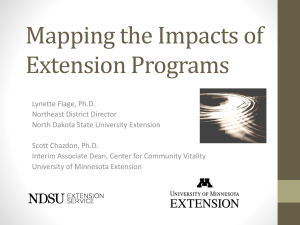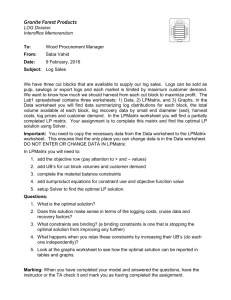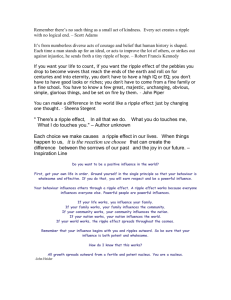Teacher:
advertisement
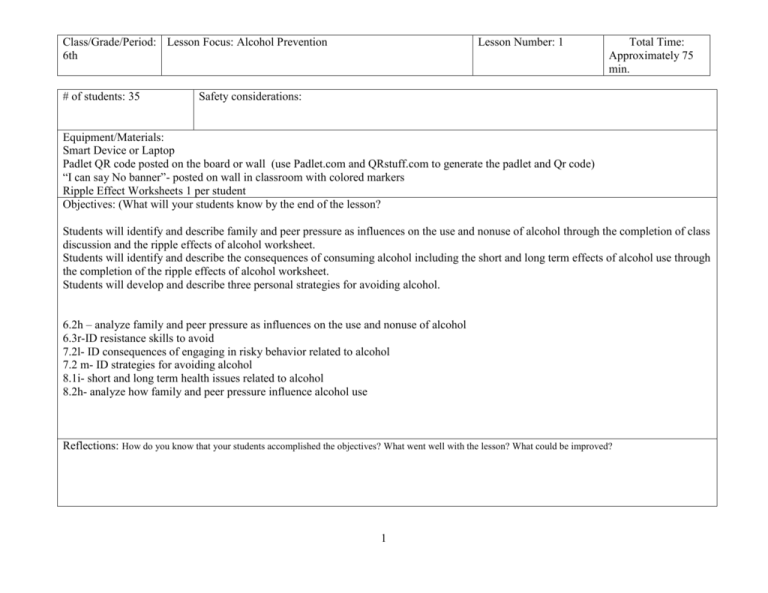
Class/Grade/Period: Lesson Focus: Alcohol Prevention 6th # of students: 35 Lesson Number: 1 Total Time: Approximately 75 min. Safety considerations: Equipment/Materials: Smart Device or Laptop Padlet QR code posted on the board or wall (use Padlet.com and QRstuff.com to generate the padlet and Qr code) “I can say No banner”- posted on wall in classroom with colored markers Ripple Effect Worksheets 1 per student Objectives: (What will your students know by the end of the lesson? Students will identify and describe family and peer pressure as influences on the use and nonuse of alcohol through the completion of class discussion and the ripple effects of alcohol worksheet. Students will identify and describe the consequences of consuming alcohol including the short and long term effects of alcohol use through the completion of the ripple effects of alcohol worksheet. Students will develop and describe three personal strategies for avoiding alcohol. 6.2h – analyze family and peer pressure as influences on the use and nonuse of alcohol 6.3r-ID resistance skills to avoid 7.2l- ID consequences of engaging in risky behavior related to alcohol 7.2 m- ID strategies for avoiding alcohol 8.1i- short and long term health issues related to alcohol 8.2h- analyze how family and peer pressure influence alcohol use Reflections: How do you know that your students accomplished the objectives? What went well with the lesson? What could be improved? 1 Class/Grade/Period: Lesson Focus: Alcohol Prevention 6th Lesson Number: 1 Total Time: Approximately 75 min. Circle or highlight the numbers from each set of standards below that this lesson addresses: National Health Education Standards (2007) 1. Students will comprehend concepts related to health promotion and disease prevention to enhance health. 2. Students will analyze the influence of family, peers, culture, media, technology, and other factors on health behaviors. 3. Students will demonstrate the ability to access valid information and products and services to enhance health. 4. Students will demonstrate the ability to use interpersonal communication skills to enhance health and avoid or reduce health risks. 5. Students will demonstrate the ability to use decision-making skills to enhance health. 6. Students will demonstrate the ability to use goal-setting skills to enhance health. 7. Students will demonstrate the ability to practice health-enhancing behaviors and avoid or reduce health risks. 8. Students will demonstrate the ability to advocate for personal, family, and community health Virginia Standards of Learning (2015) 1. Demonstrate the knowledge and skills to make healthy decisions that reduce health risks and enhance the health of self and others. (Essential Health Concepts) 2. Demonstrate the ability to access, evaluate, and use health information, products, and services that influence health and wellness in a positive manner. (Healthy Decisions) 3. Demonstrate the use of appropriate health practices and behaviors to promote a safe and healthy community when alone, with family, at school, and in other group settings. (Advocacy and Health Promotion) 2 Class/Grade/Period: Lesson Focus: Alcohol Prevention 6th Time Lesson Number: 1 Learning Activities/Tasks/Transition Organization Total Time: Approximately 75 min. Skill & Behavior Cues Assessment (extensions, refinements, applications) Students will Remind students to post one use either word responses. Bell ringer- As students enter the classroom they will scan their laptops 5-7 the QR code that will direct them to the padlet wall. Students or other smart min will think of and post one word responses to describe the device and effects of alcohol use. remain -Alternative to using the QR code would be to have students seated. write their one word on a post it note and put on the board. Students will discuss the padlet responses and categorize Students will Student’s select one response, 10 each response. stand in a discuss and categorize. If there 15min Categories should be limited to: long term or short term double circle is disagreement, students will effects of alcohol use, consequence, family influence, or inside circle justify their thought and if not peer pressure. facing outside resolved, request teacher circle. assistance. Outside circle will rotate two spaces to the left. This process will continue to allow students time to discuss the majority of the posts. 20 Teacher led discussion and review of posts. This is the time Students Allow students to share their min. for the teacher to insert specific effects and discuss family seated reasons for categorizing and peer influences on alcohol use or non-use. Students will responses. Teacher will limit take notes either on paper or on their laptop. responses and remind students to not identify specific names when sharing. Padlet 15 min Ripple Effect worksheet Ripple Effect Worksheet. Students will use their notes from prior discussion to complete the ripple effects of alcohol worksheet. 3 Students seated, working individually. Students will be reminded to personalize the ripple effect worksheet where appropriate Student participation Students will have notes available for teacher to view upon request. Class/Grade/Period: Lesson Focus: Alcohol Prevention 6th Lesson Number: 1 Total Time: Approximately 75 min. 10 min Personal refusal skills. Students will analyze their responses on the ripple effects worksheet and develop three refusal strategies specific to alcohol. Students will select their strongest refusal technique and write on the “how I can say no” banner on the wall on the classroom. Students seated and working with a partner. After students have developed their refusal strategies, they will share and discuss their refusal strategies with a partner. Partners will provide feedback if needed to strengthen the refusal strategy. Refusal strategies written on back of ripple effect worksheet. 5 min Closure- Students will walk up to the “how I can say no” banner and high five their personal response and say it out loud. Students exiting class Students will be instructed to high five their response as a reminder to stay focused and continue thinking about the importance of avoiding alcohol. Teacher observes and encourages students to high five their response. 4
